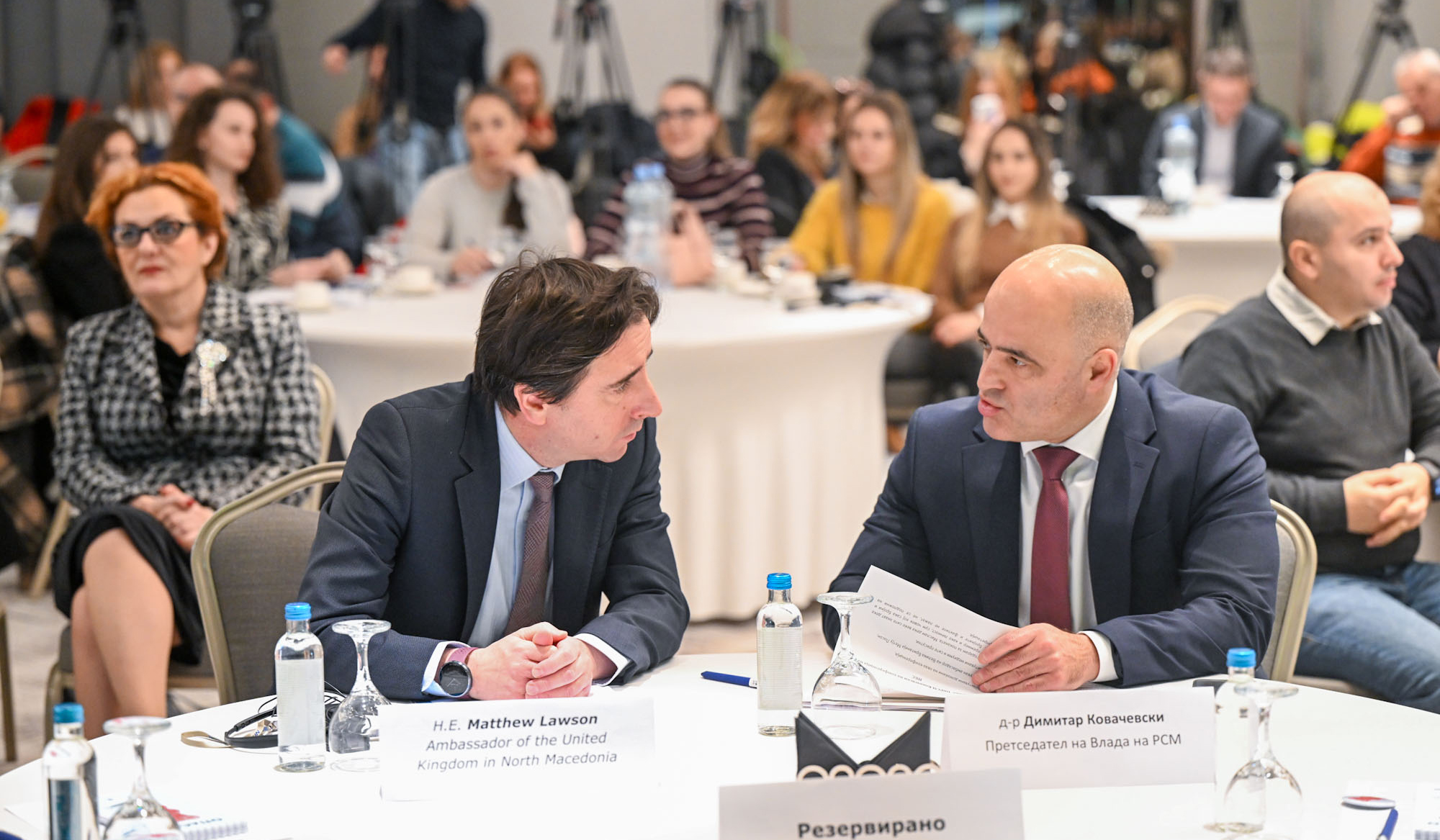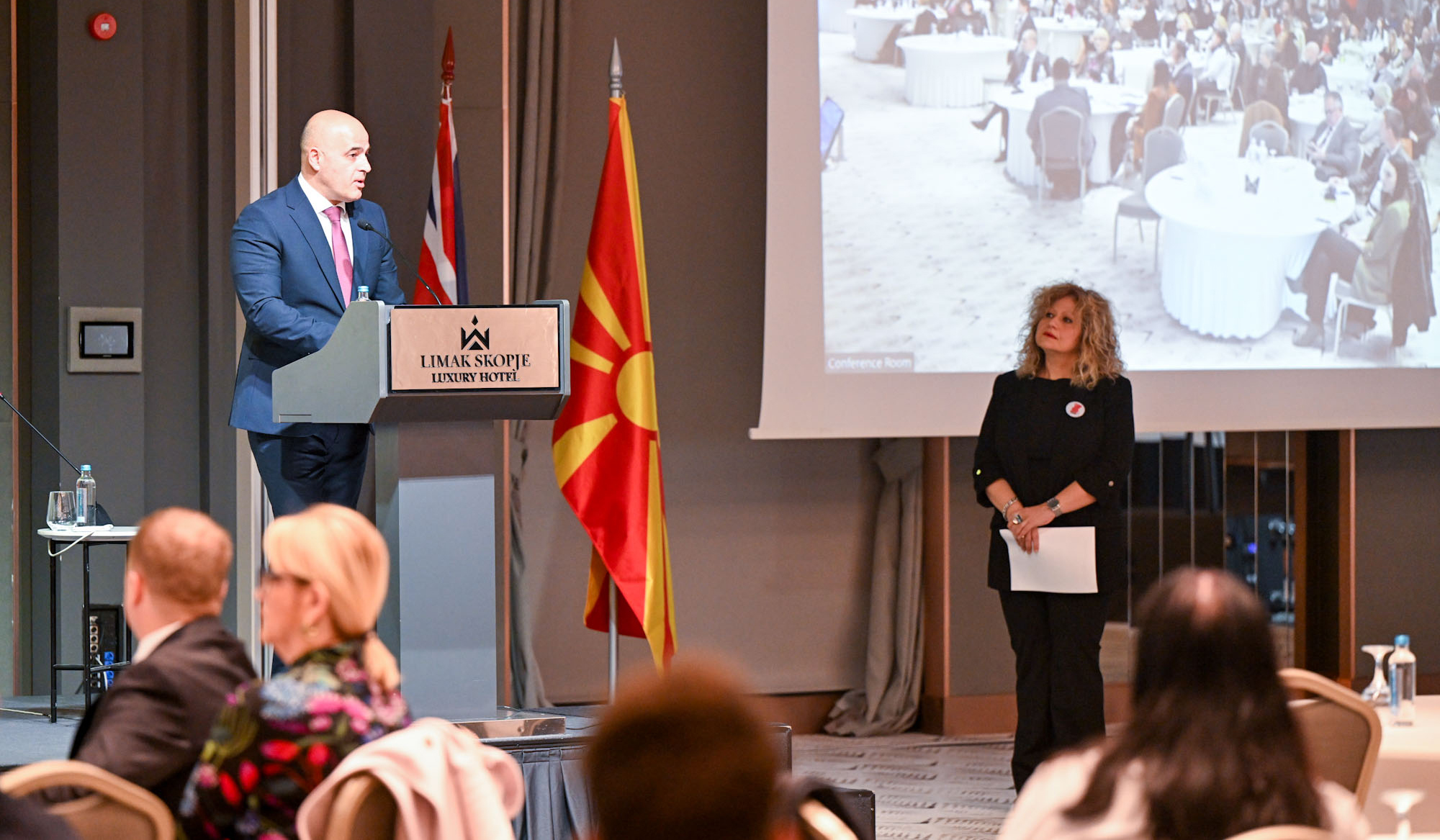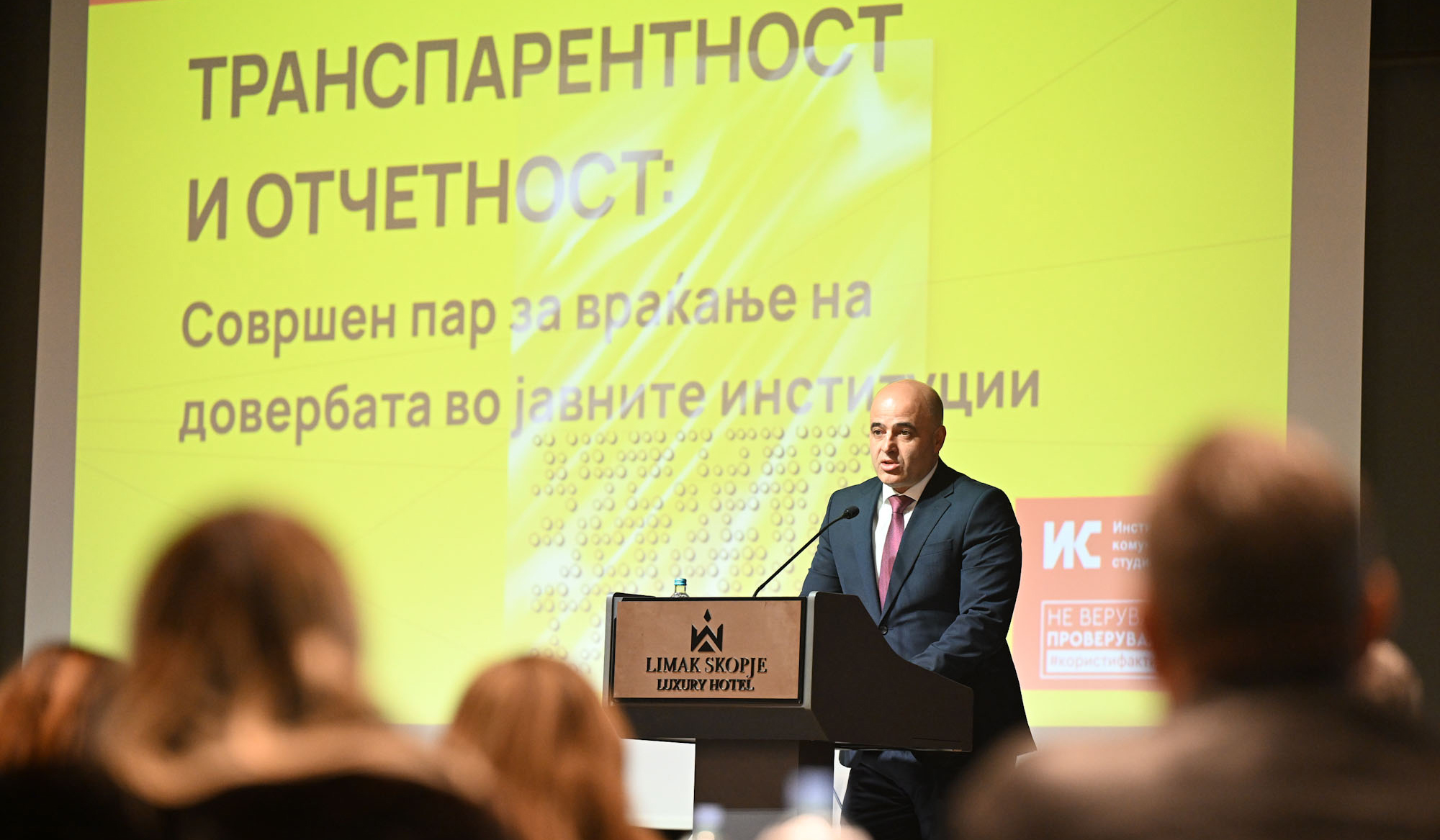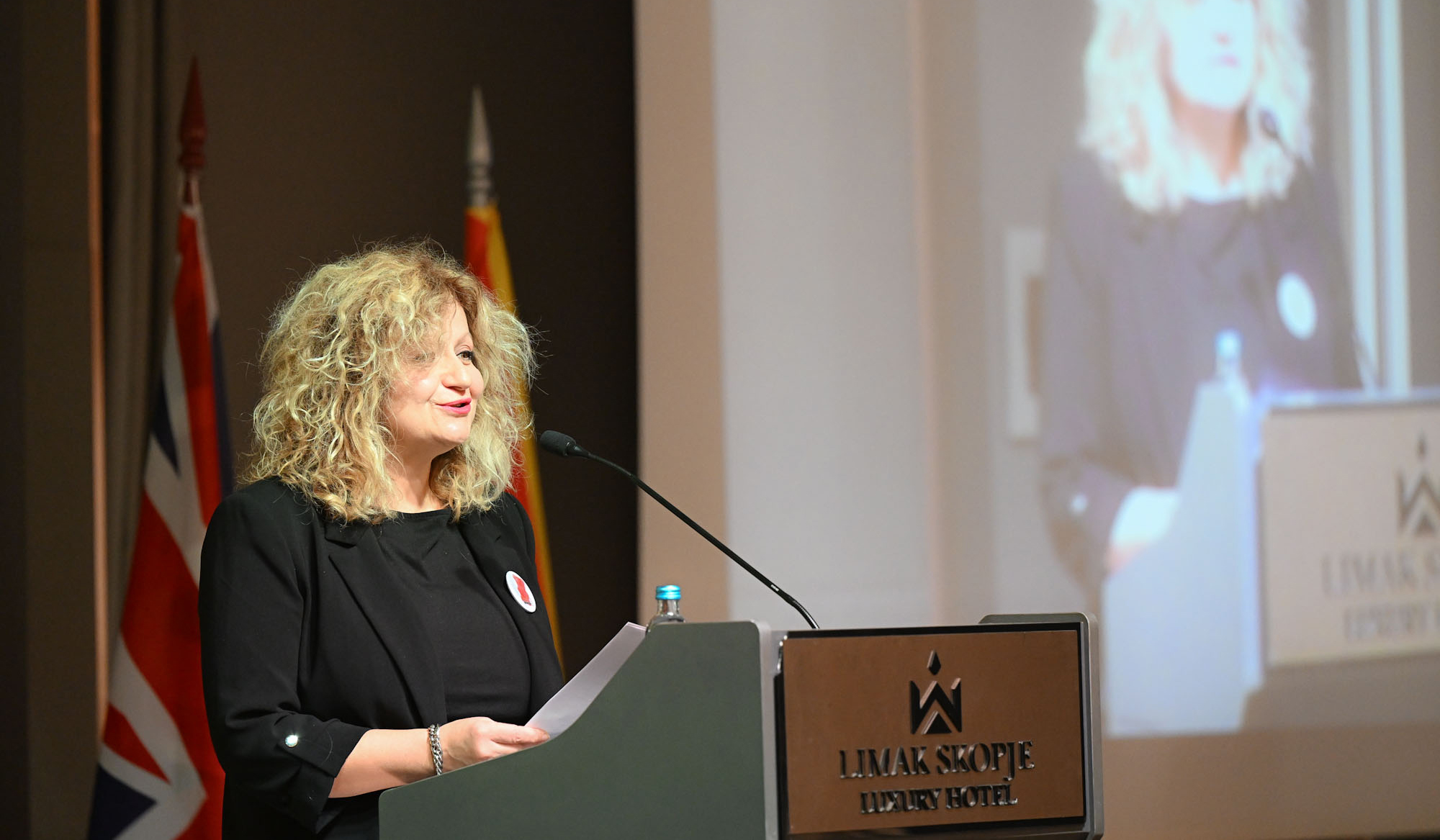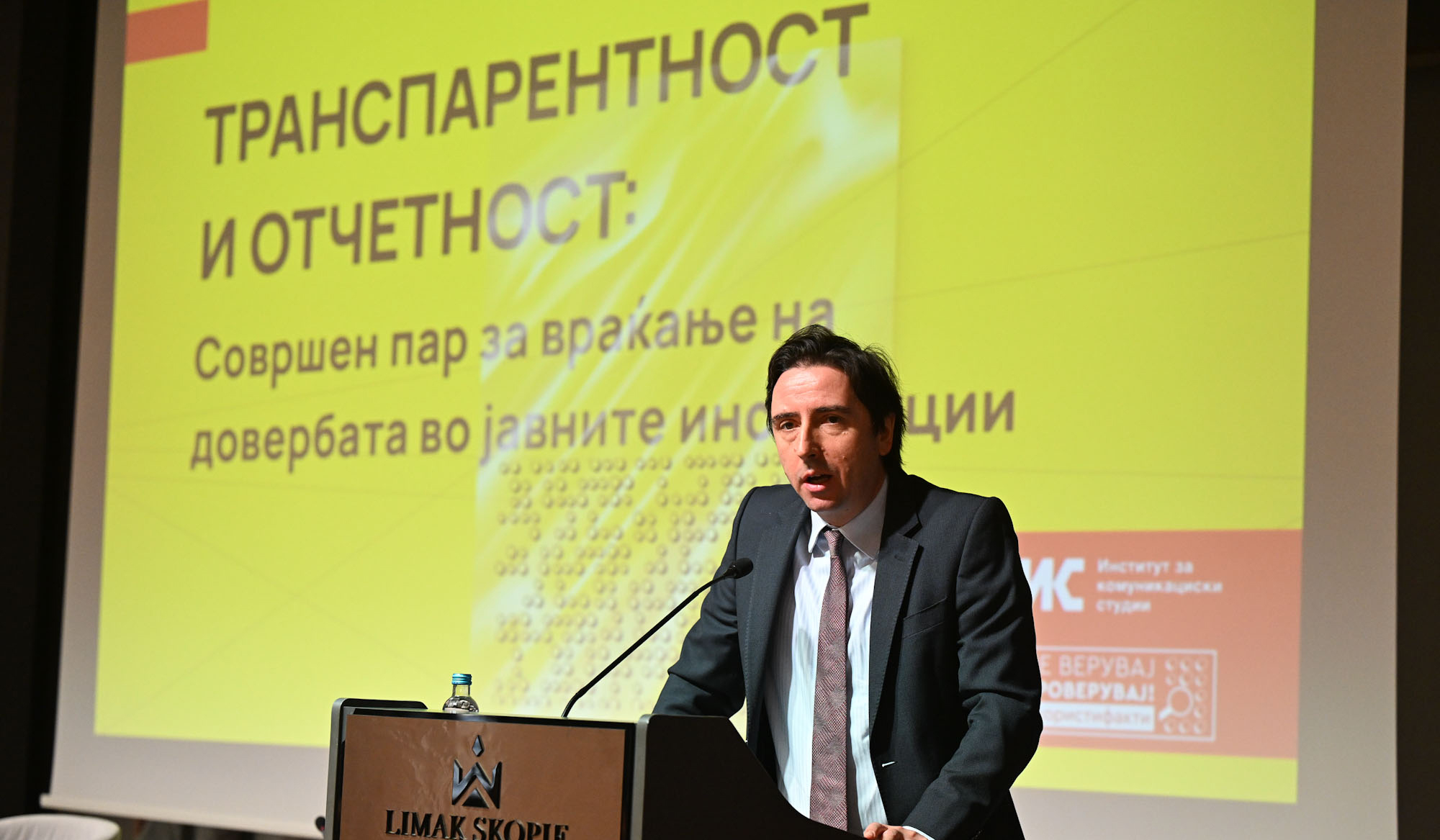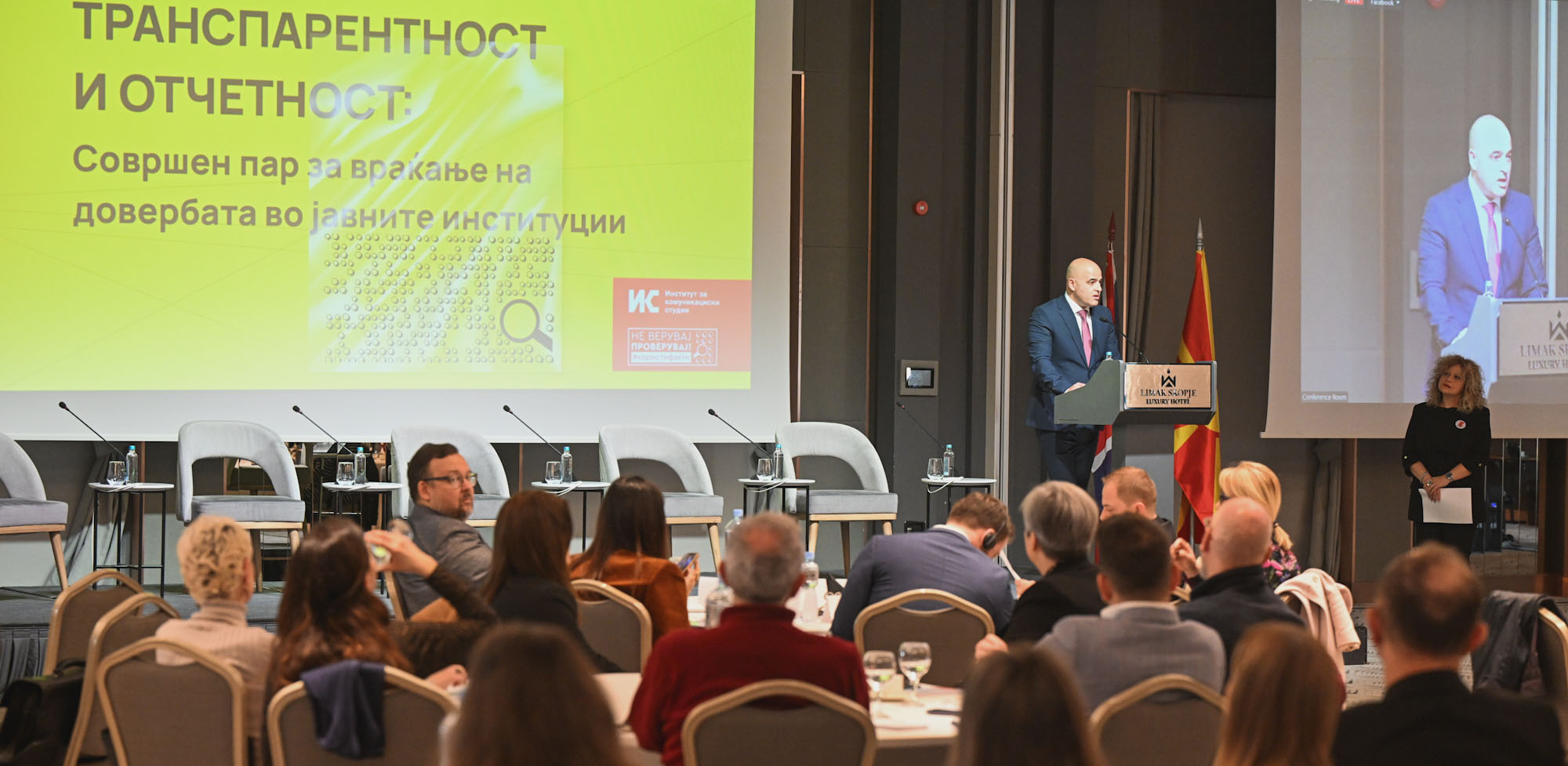
Оpen institutions ensure accountability before the citizens
Increased transparency is the only way for public institutions to provide accountability regarding the spending of public funds from the central budget. Institutional transparency has improved over the last years, however the citizens’ perception is negative nevertheless, while public trust in the institutions is low. This was stated at the conference “Transparency and accountability: A perfect pair to restore trust in public institutions”, organized by the Institute of Communication Studies today.
In her introductory speech, the Institute’s Director Zaneta Trajkoska said that there is an epidemic of distrust in the three branches of power: executive, legislative and judicial and that this is a slap to the face for everyone. She pointed out the importance of transparent and accountable work as key to public trust.
“We deeply believe that the greater the accountability, the more successful we will be in countering disinformation and propaganda that cause chaos in the public domain, erode the trust and make the citizens more passive”, Trajkoska stated.
In his address, Prime Minister Dimitar Kovacevski said that he is satisfied with the level of transparency of the Government, as it is responsive to the requests for free access to information and, in general, in terms of active transparency. The negative remarks from citizens, he said, are due to perception, and not based on statistical data. Kovacevski announced that the transparency of the Government and of public institutions will continue to rise with transparent publication of all public procurements. The Prime Minister assessed that transparency perhaps might not guarantee trust, although lack of transparency definitely guarantees distrust.
“The citizens build their trust based on their perception and personal experiences, seldom based on facts. The level of transparency may be high, while trust is low, and there might be multiple factors leading to that. If we are to go out now and ask the citizens, their answers will be based on their perception, which is influenced by the media informing them”, Prime Minister Kovacevski said.
Kovacevski believes that there is room for improvement of transparency in the judiciary, legislative and local government.
The UK Ambassador to North Macedonia, Matthew Lawson, pointed out that the openness of the governments is essential to detect and prevent corruption, which is the main concern of the citizens. He particularly stressed the importance of financial transparency and how tax payers’ funds are being spent.
“Corruption is the main issue that citizens are facing. It is detrimental to democracy and it deteriorates the living conditions and social cohesion. It is very important to have insight into how public funds are being spent, and how judges and prosecutors contribute to that. The role of the media is key – we support those who protect public interest”, Ambassador Lawson stated.
The conference will provide new perspectives and approaches to increasing the trust in governmental institutions, with a focus on transparency and accountability in the rule of law and corruption. The Institute of Communication Studies is organizing the conference within the “Use Facts” project, supported by the UK Embassy in Skopje.


